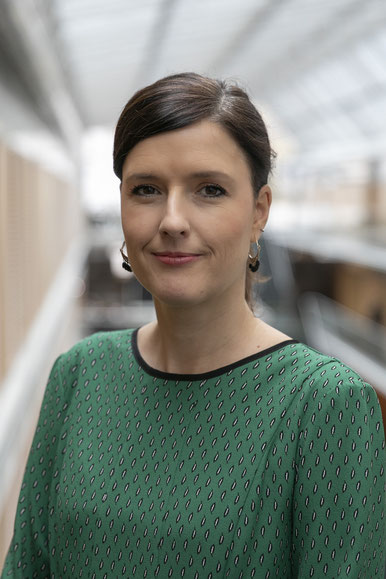Author: Sarah Huemer |
Prioritize your own interests, the invisible hand will manage it and generate overall economic well-being – a leading economic principle for optimal human decision making. However, not always. Following solely the individual self-interest can lead to severe distortions putting everyone in society worse off. Those situations are known as social dilemmas. A present-day example impacting all of us: the trinity of Covid19 rules including social distancing, disinfection and the face mask. If each and every one stuck to strict standards, possibly a second lockdown would have been prevented. However, if “everyone wears a mask, you are tempted to be the one that does not, as the risk of infection is lower when others are wearing it and the mask can be uncomfortable. When we all act this way, nobody wears a mask and we end up further spreading the disease”, says Esther Blanco from the department of public finance of the University of Innsbruck. She dedicates her research to behaviour of people and firms in these so-called social dilemmas. “Those are situations where everyone would be better off if we all worked together.“ Social dilemmas refer to tensions between an individual and a group, leading to a paradox in which people are worse off when merely considering their self-interest. Vaccines, for instance, are another popular example for a social dilemma. If all others are vaccinated, one can free-ride on the protection that others ensure and decide to not take the effort of getting vaccinated. However, at a certain percentage of free-riders, society loses herd immunity, leading to previously eradicated illnesses inflaming again.
Towards the eco-friendly equilibrium
Blanco’s main focus is on social dilemmas as related to the conservation of the environment. Having studied a bachelor in environmental science, she realized that people and their behaviour are the core variable in the equation of conservation and associated well-being. Changing her graduate studies to economics, she focuses her research on people’s and firm’s behaviour to voluntarily protect the environment. The goal: Understanding (non-coercive) mechanisms to shift society towards an eco-friendly equilibrium. Two essential principles for this transformation include raising awareness and correcting perverse incentives. First, people might not care about environmental conservation. “Many do not really know how much we are actually getting from the conservation of ecosystems. Estimates show that ecosystem services contribute more than twice as much to human well-being as the world GDP.” Due to a lack of information or a missing emotional connection to natural surroundings like woods or mountains, some people do not consider the significance of functioning ecosystems in their decisions. “If you are missing this bit, you cannot care that much”, Blanco explains.
Second, some people have passed the first stage, i.e. they do care, however, their budget constraint hinders them from taking eco-friendly decisions. In consumer choices, people always face trade-offs, having to give up one good or service for another. Depending on the price, a t-shirt produced with organic cotton may compete with spending more or less on drinks a Friday night out. Additionally, people also have an emotional constraint. “One is not infinitely rich and one is not infinitely attentive to everything that happens in the world, so one needs to balance things all the time”. In such settings, easing access to information and setting incentives in line with pro-social objectives can facilitate eco-friendly choices.
But one needs to be careful in changing incentives, particularly when introducing markets for environmental conservation. There are people that behave as altruists, deeply concerned and moved by internal motivations. They have a high willingness to invest and focus their life into environmental protection, like many young people leading the social movement of Fridays for Future. From a policy perspective, it is crucial not to demotivate those people as they make substantial efforts and can also function as role-models and lead the change.
Controlling free-riders
A last aspect that Blanco emphasizes is the need to have free-riders under control. Many people will be ready to keep up conservation efforts as long as they know that others are not taking advantage of their efforts. In other words, if they stick to the social norms regarding environmental protection, they expect others to do so as well. Seeing others to free-ride and not making efforts, for example, against climate change, may lead to frustration and conflict. However, while identifying and punishing free-riders may sound trivial, it definitely is not.
In designing policies to tackle these issues, Blanco underlines that various levels in society – from grassroots to international agreement – play a crucial role in this process. “Collaborating on these various levels will hopefully improve conservation of ecosystems and climate prospects.” The European Green Deal is an example of bundling policies at different levels. Instead of isolating a single intervention, several policies are packaged together on all layers of society. Communicating the challenge of the climate situation is fundamental for people to include it into their consumer decisions. Additionally, a good mix of incentives needs to be set to encourage environmentally friendly behaviour, reflecting the climate crisis clearly in price structures. “In addition, international cooperation and strong social norms are critical to achieve a prosperous and sustainable economic system. Working together can help us all have better living conditions in the future.”

